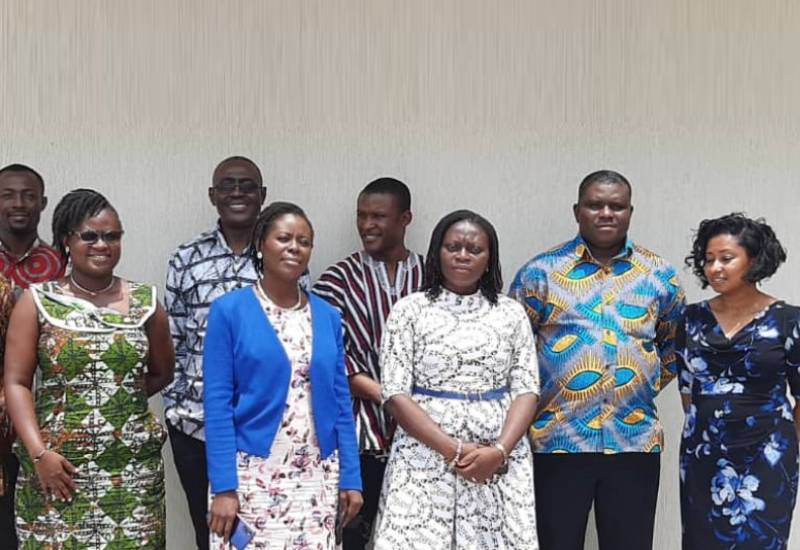The Centre for Agriculture and Bioscience International (CABI) says extending agriculture extension and advisory services to women is key to ensuring the livelihood of female smallholder farmers across the country.
In its Gender and Rural Advisory Services Assessment in Ghana study, CABI found out that women continued to be marginalized in access to agricultural extension and advisory services because of deep-rooted socio-economic and cultural practices in a male-dominated society.
The study was conducted in August 2021 in three districts in three regions with different socio-cultural characteristics and reviewed at a validation workshop in Accra.
The districts are Komenda, Edina, Eguafo and Abirem in the Central Region, Sunyani West District in the Bono Region and Yendi District in the Northern Region.
The Gender Specialist for CABI, Ms Bethel Terefe, presenting the findings of the report, said female farmers had limited access to extension advisory support, including plant health services, due to various challenges such as low levels of financial resources, time and mobility constraints and socio-cultural as well as literacy limitations.
The study underscored that these factors have contributed significantly to the gender gap in agriculture productivity in the country, and if closed, could help boost agriculture production and help improve the welfare of rural households.
Commenting on the study, the Regional Representative of CABI West African Centre (CABI-WAC), Dr Victor Attuquaye Clottey, said the study was to identify the limiting factors and highlight ways in which organisations could improve the design and delivery of agricultural advisory services, particularly at the rural level for women to benefit more.
“We noticed that although there have been some slight improvements, women are often at a disadvantage when it comes to technology transfer and delivery of agricultural advisory services that include knowledge and information around agricultural development,” he said.
He called for a closer look at the situation in the various communities in the country and encouraged the government agencies to particularly target female smallholder farmers across the country when rendering agriculture extension services.
Ms Bethel Terefe advised the government to ensure equity by equipping agricultural advisory service providers with decision-making tools to offer advice to farmers in a way that ensure both men and women farmers are able to access and benefit from such services.
CABI also urged stakeholders in the agriculture extension services to create an enabling environment for female farmers to access extension advisory services by raising awareness among community leaders and men of the benefits such services have for the whole household.
Speaking on the whole exercise, the representative of the Director of Women in Agricultural Development Directorate (WIAD) of MoFA, Naa Oyoe Quartey underscored that this initiative was a step in the right direction and will go a long way to complement the work of WIAD in ensuring that women get the needed recognition and support to contribute their due to the agricultural development of the country. She also commended CABI for the laudable initiative and called for collaboration and synergies between relevant stakeholders to address these persistent gender gaps in Ghana’s agricultural sector.
Since 2012, CABI had been implementing the Plantwise programme which aimed to enhance the knowledge and uptake of climate-smart plant health practices in Ghana. The study was conducted to understand what worked in designing and delivering gender-sensitive extension advisory services in Ghana and to shed light on areas where improvement was required in existing services in order to increase their gender sensitivity.
The workshop brought together stakeholders in the agricultural sector and academia to discuss the findings and recommendations of the assessment as well as future actions that could be taken to strengthen gender sensitive delivery of agricultural advisory services.
Ashantibiz





